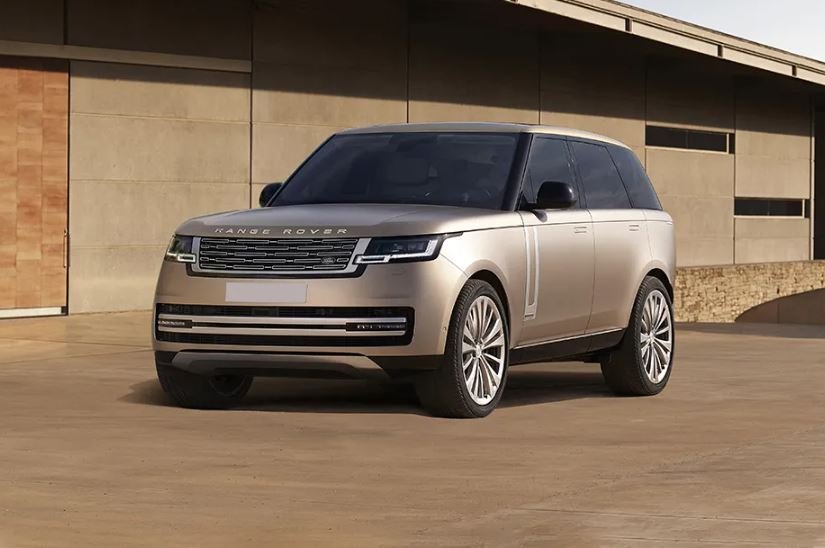Range Rover, a name synonymous with luxury, ruggedness, and performance, has a rich history of engineering excellence. One of the key factors behind its success is the impressive range of engines that power these iconic vehicles. In this article, we’ll explore the evolution, technology, and performance of Range Rover engines, breaking down complex concepts into simple English.
Historical Evolution of Range Rover Engines
Early Years: The Birth of a Legend
When the first it was introduced in 1970, it was powered by a 3.5-liter V8 engine. This engine, derived from a Buick design, was known for its robust performance and smooth power delivery. It set the standard for the off-road capability and on-road comfort that it would become known for.
Innovations in the 1980s and 1990s
The 1980s and 1990s saw significant advancements in Range Rover engine technology. During this period, the engines became more powerful and efficient. The introduction of fuel injection systems in the mid-1980s improved performance and fuel economy. By the 1990s, it had introduced a range of V8 engines, including a 4.2-liter version that offered even greater power.
Modern Range Rover Engines
Gasoline Engines
Today’s Range Rover lineup features a variety of powerful and efficient gasoline engines. One notable example is the 5.0-liter V8 supercharged engine. This engine produces an impressive 518 horsepower and 461 lb-ft of torque, allowing the it to accelerate from 0 to 60 mph in just 5.1 seconds. The supercharging technology ensures consistent power delivery, making it ideal for both on-road and off-road driving.
Diesel Engines
For those seeking a balance between power and fuel efficiency, it offers several advanced diesel engines. The 3.0-liter V6 turbodiesel engine, for instance, delivers 254 horsepower and 443 lb-ft of torque. Diesel engines are known for their excellent torque characteristics, making them ideal for towing and off-road adventures. Additionally, modern diesel engines are designed to meet stringent emissions standards, ensuring they are environmentally friendly.
Hybrid and Electric Options
In response to the growing demand for eco-friendly vehicles, it has introduced hybrid and electric powertrains. The P400e plug-in hybrid combines a 2.0-liter four-cylinder gasoline engine with an electric motor, producing a combined 398 horsepower. This setup allows for short-distance all-electric driving and significantly reduces emissions. It’s commitment to sustainability is evident in its plans to introduce fully electric models in the near future.
Engine Technology and Innovations
Turbocharging and Supercharging
One of the key technologies used in modern Range Rover engines is forced induction, which includes turbocharging and supercharging. Turbochargers use exhaust gases to spin a turbine, compressing the air entering the engine. This increases the engine’s efficiency and power output. Superchargers, on the other hand, are driven by the engine itself, providing instant power boost. Both technologies enhance performance while maintaining fuel efficiency.
Variable Valve Timing
Variable valve timing (VVT) is another significant advancement in engine technology. VVT allows the engine to adjust the timing of the intake and exhaust valves, optimizing performance across different engine speeds and loads. This results in improved fuel efficiency, reduced emissions, and better overall performance. It’s engines equipped with VVT deliver smooth power delivery and responsiveness.
Direct Fuel Injection
Direct fuel injection (DFI) is a technology that delivers fuel directly into the combustion chamber, rather than through the intake manifold. This precise control over the fuel-air mixture results in more efficient combustion, higher power output, and lower emissions. It’s modern engines utilize DFI to achieve exceptional performance and fuel economy.
Performance and Off-Road Capability
Power and Acceleration
Range Rover engines are designed to provide exceptional power and acceleration. Whether it’s the high-performance V8 supercharged engine or the efficient diesel powertrain, these engines deliver impressive performance figures. The advanced engineering ensures that even the heaviest Range Rover models can accelerate quickly and maintain high speeds effortlessly.
Towing Capacity
One of the standout features of Range Rover engines is their towing capacity. Thanks to the high torque output, particularly from the diesel engines, range rover evoque engine light, Range Rovers are capable of towing heavy loads with ease. This makes them ideal for those who need to transport trailers, boats, or other large items.
Off-Road Prowess
Range Rover’s reputation for off-road capability is well-deserved, and the engines play a crucial role in this. The combination of high torque, advanced four-wheel-drive systems, and innovative technologies like Terrain Response ensures that Range Rovers can tackle the toughest terrains. The engines provide the necessary power and control to navigate through mud, sand, rocks, and steep inclines.
Environmental Considerations
Emissions and Fuel Efficiency
As environmental concerns become increasingly important, Range Rover has made significant strides in reducing emissions and improving fuel efficiency. Modern engines are designed to meet stringent emissions regulations while delivering high performance. The introduction of hybrid and plug-in hybrid models further demonstrates Range Rover’s commitment to sustainability.
Future of Range Rover Engines
Looking ahead, Range Rover is poised to continue its tradition of innovation. The development of fully electric models is a testament to the brand’s commitment to reducing its carbon footprint. These electric models will offer the same luxury and performance that Range Rover is known for, with zero emissions.
Range Rover engines are a blend of power, efficiency, and innovation. From the early V8 engines to the modern supercharged, turbocharged, and hybrid powertrains, Range Rover has consistently pushed the boundaries of what is possible. These engines are not just about raw power; they are about delivering a refined and capable driving experience, whether on the highway or off the beaten path. As technology continues to evolve, Range Rover is set to lead the way with engines that are not only powerful but also environmentally friendly.





